In the summer of 2017, David and Corey Menkes, founders of bean-to-bar chocolate company Letterpress Chocolate, were leaving the Fine Chocolate Industry Association’s biannual event in New York City. Their flight was homeward bound for Los Angeles, and as the plane was taking off, the Menkes watched a livestream of the International Chocolate Awards (ICA) for the Americas with anticipation. Their single-origin Ucayali (pronounced yü-ca-yālē) dark chocolate bar was up for consideration.
The plane was pushing off the ground when they learned their Ucayali chocolate received that year’s gold medal out of all the micro-batch competitors in North and Latin America. It was a moment two years in the making.
Before landing in California, their Ucayali won two more awards including the Triple MMM, a special award given by the founding partners of the ICA to recognize a personal favorite from that year. And awards have continued to stream in for Letterpress Chocolate since their first win. This initial moment celebrated many winners: David, Corey, Ucayali River Cacao, and the community of farmers who embraced the vision of growing the highest quality cacao in Peru to make phenomenal chocolate.
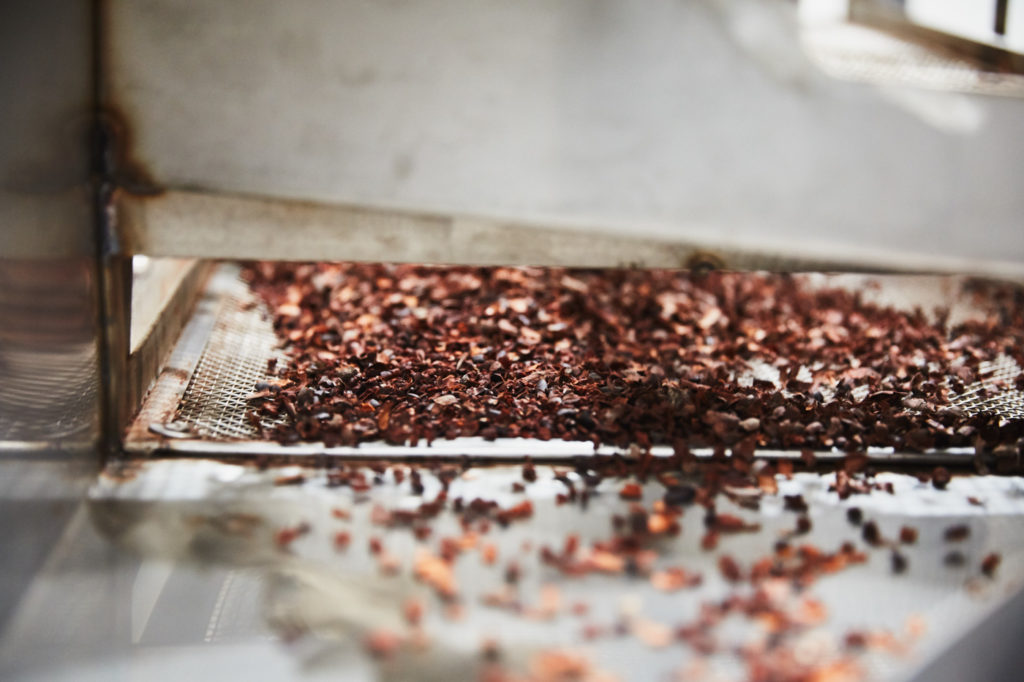
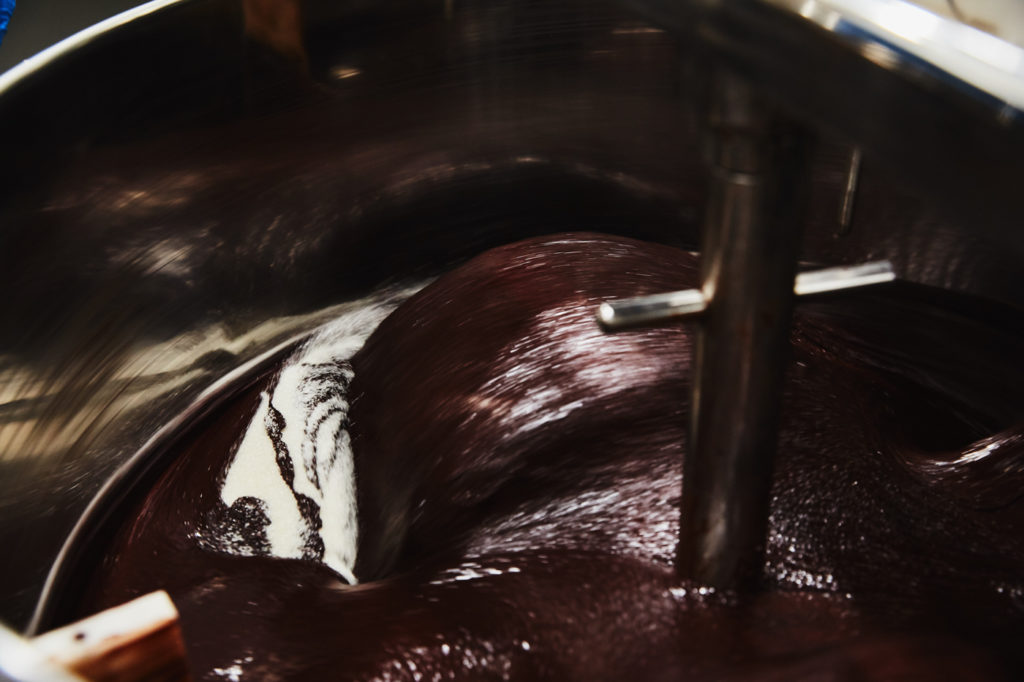
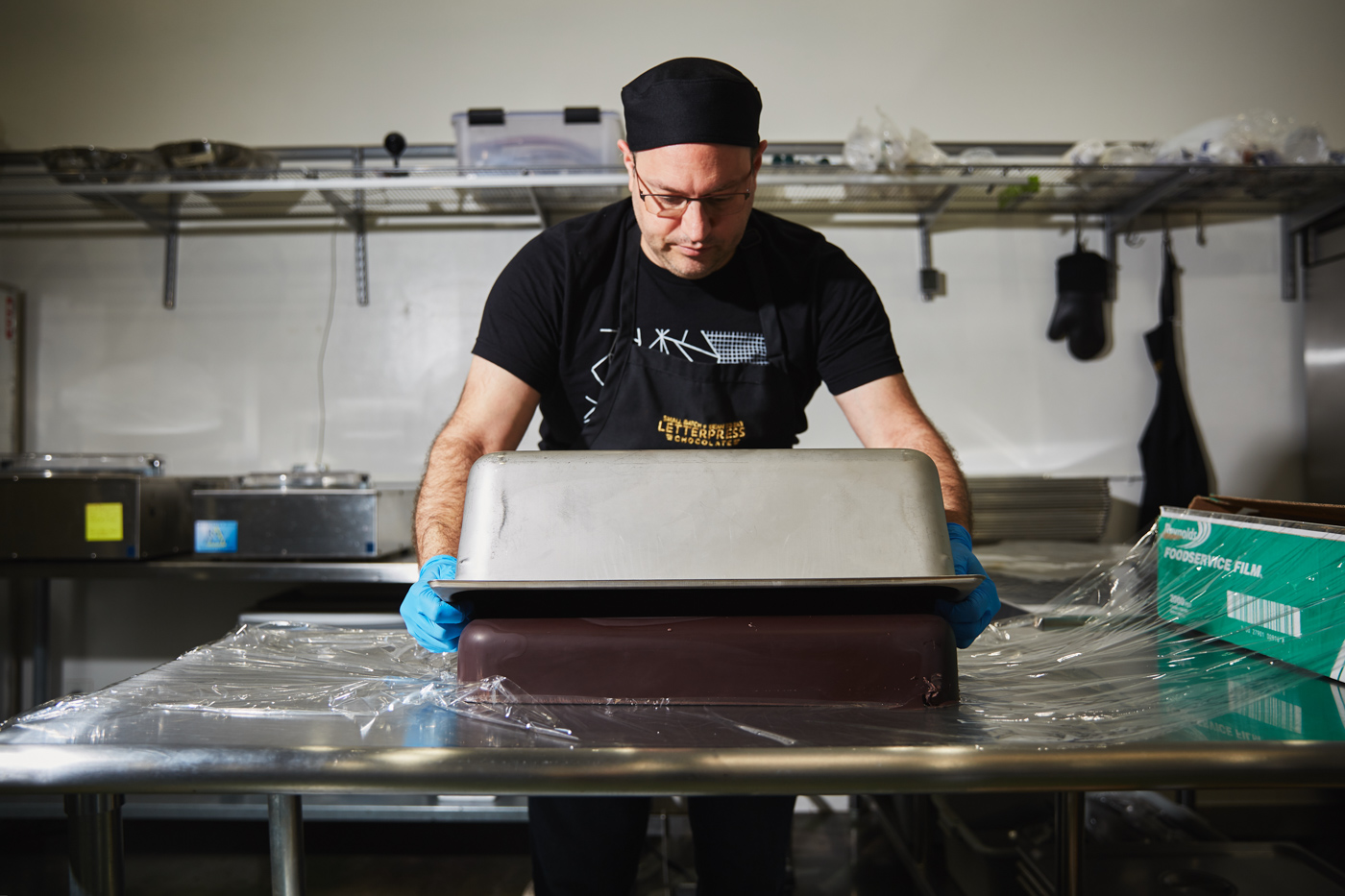
Situated along the western edge of the Amazon where the great Ucayali River snakes through the dense forest, the Ucayali region is a massive tropical jungle on the eastern end of Peru. Near the region’s capital city of Pucallpa, a new project called Ucayali River Cacao had been working with small farms dotting the river. The microclimate was ideal for growing a variety of cacao native to Peru, with the potential to attract craft chocolate industry attention. Letterpress Chocolate was the first to debut Ucayali dark chocolate to the world in 2015 at the Northwest Chocolate Festival in Seattle, and in 2017 Letterpress Chocolate and Ucayali made their biggest splash on an international level.
Until that point, this region was better known for supplying coca, used to produce cocaine, to a local terrorist group. That the area was farming high-end cacao was out of the area’s narrative; even as Ucayali was winning awards in 2017, the region was only producing enough cacao to supply the demand of two craft chocolate makers.
Although Letterpress Chocolate has since settled into a commercial kitchen in the South Robertson block in Culver City, the Menkes aren’t far removed from the days when they operated their start-up company out of their living room. Having the opportunity to work with this coveted cacao was a major win for such a small operation.
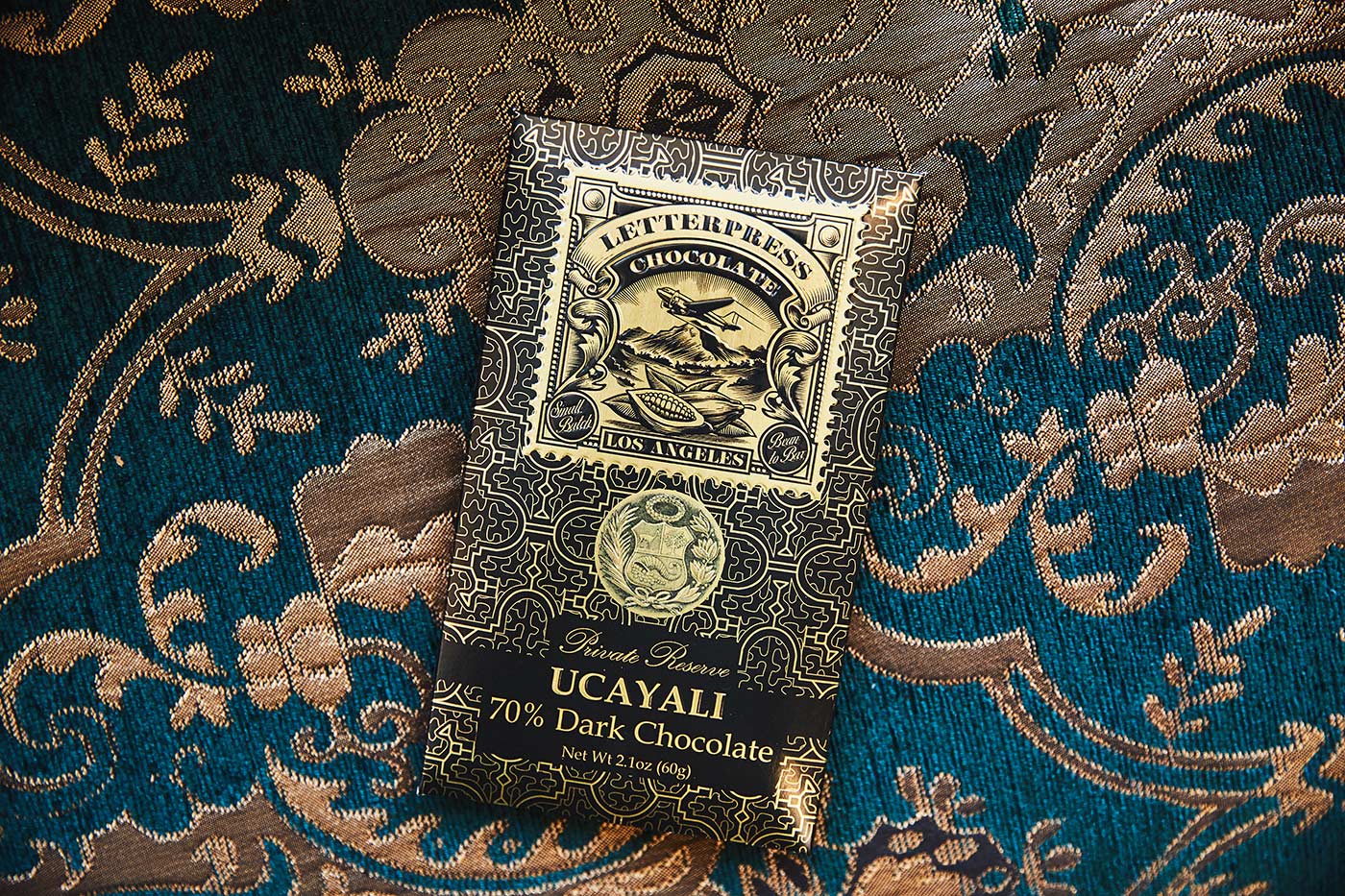
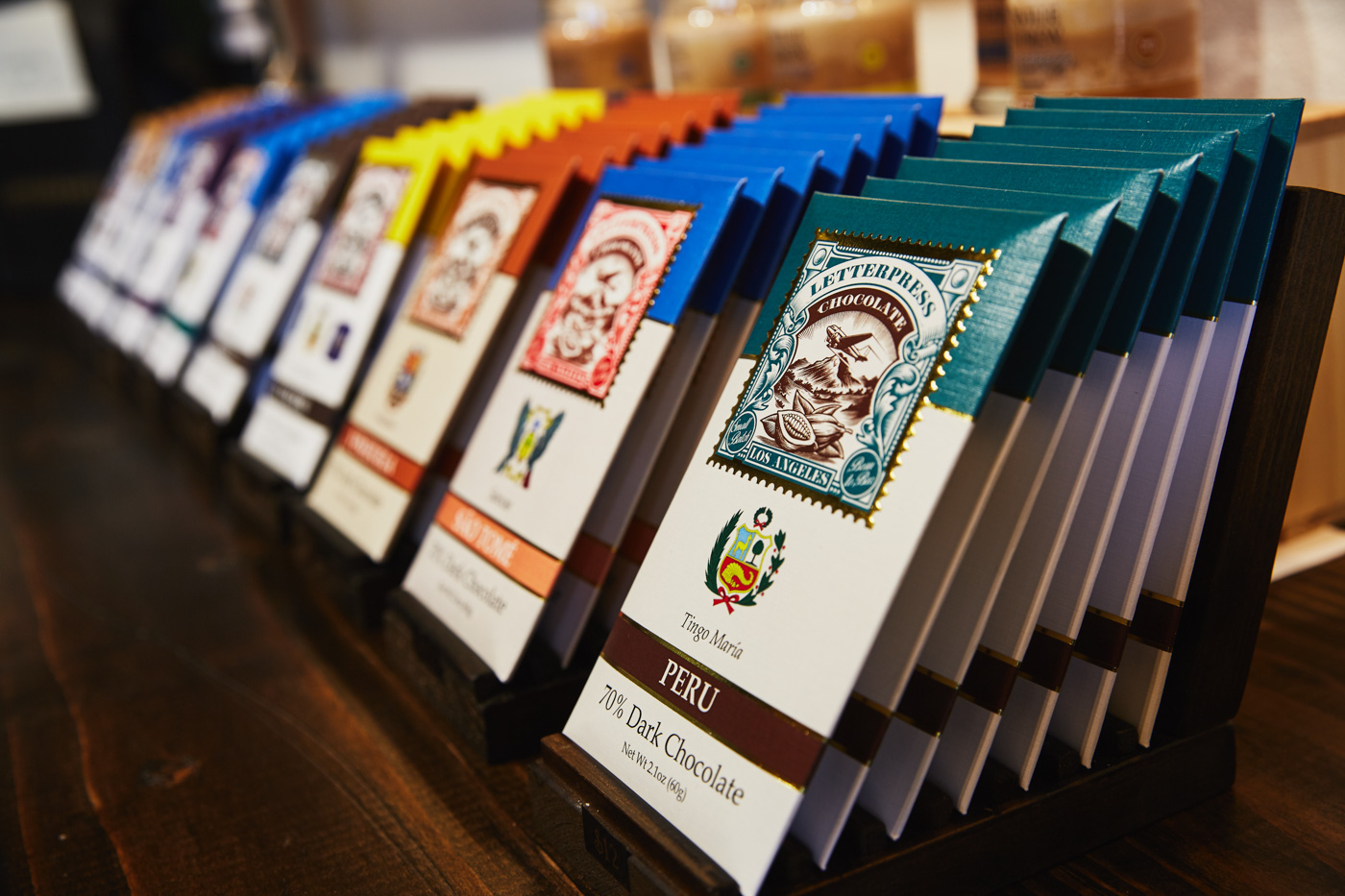
This iteration of the ICA marked a rare moment of change in the craft chocolate industry. Regions like Porcelana, Chauo, and other parts of Venezuela commonly lauded for producing exceptional cacao were expectant winners in these competitions in 2017. And Letterpress Chocolate and the Ucayali region were standing on an international stage, shoulder to shoulder with the best cacao in the world.
***
Three years before this moment, in 2014, Robin Jordan arrived in Pucallpa. He was working in the seafood industry when family ties and a serendipitous trip introduced him to the cacao farms in Ucayali and Huánuco. On that journey, he learned from his brother-in-law that a native variety of cacao called comun was a superb commodity. The problem was its quality was mostly lost or ruined in production, specifically during the fermentation of the cacao beans.
Through further research, Jordan learned the Ucayali River and Mananon River basins were home to some of the oldest cacao genetics to date. This Peruvian cacao had great potential, but it was being pushed out by more profitable options like coca to make cocaine, palm oil, and an imported variety of cacao that grew faster but tasted mediocre at best.
This struck a deep chord with Jordan, who worked extensively in the quality-conscious world of salmon caviar for the Japanese market. He wanted to build a fermentation center that would do justice to the comun variety and reintroduce it to the commodity market.
Once Jordan made this decision, Dan O’Doherty entered the picture. O’Doherty was exactly what the Ucayali region and Jordan needed—a reputable cacao fermentation specialist. They broke ground in the Peruvian jungle to set up a proper fermentation center for cacao beans. With Jordan’s background and O’Doherty’s expertise, the fermentation and drying process would successfully preserve the distinct, bright flavors of comun cacao and its terroir.
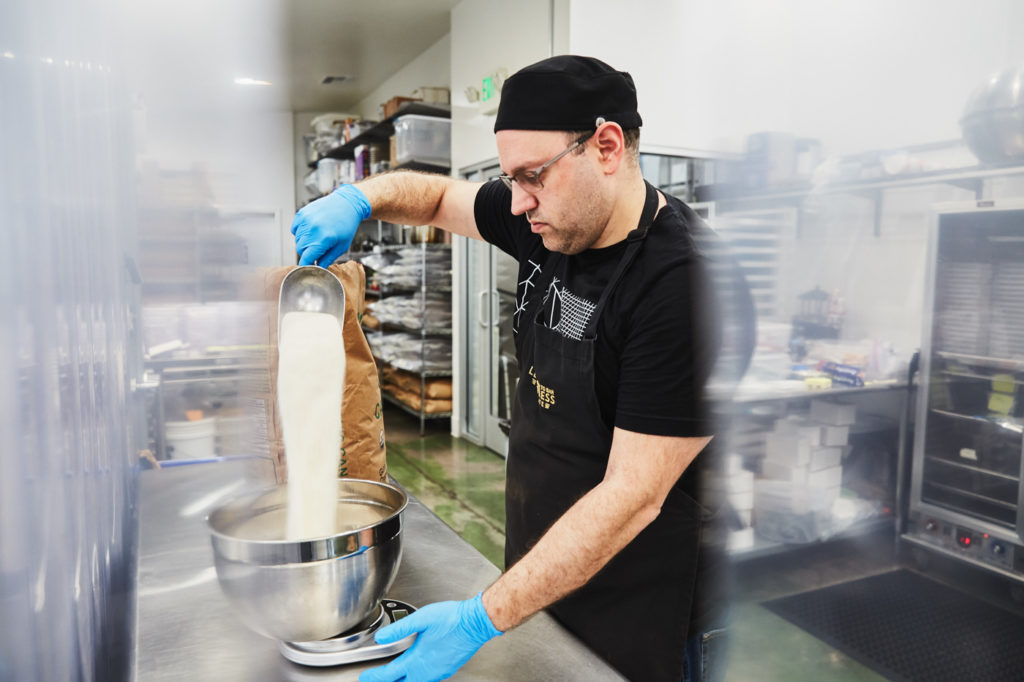
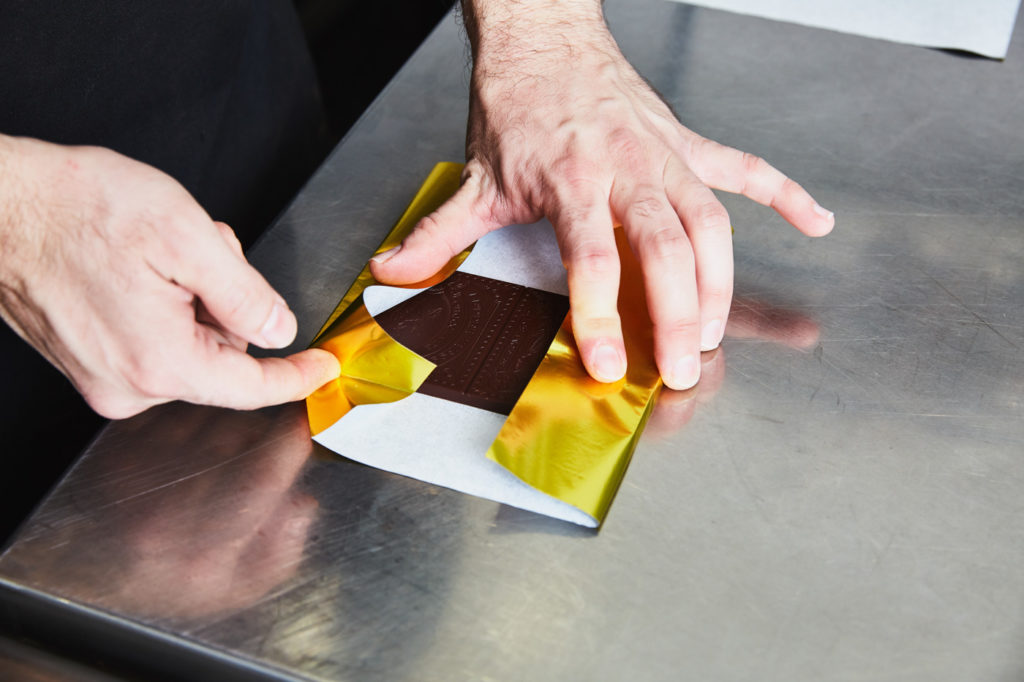
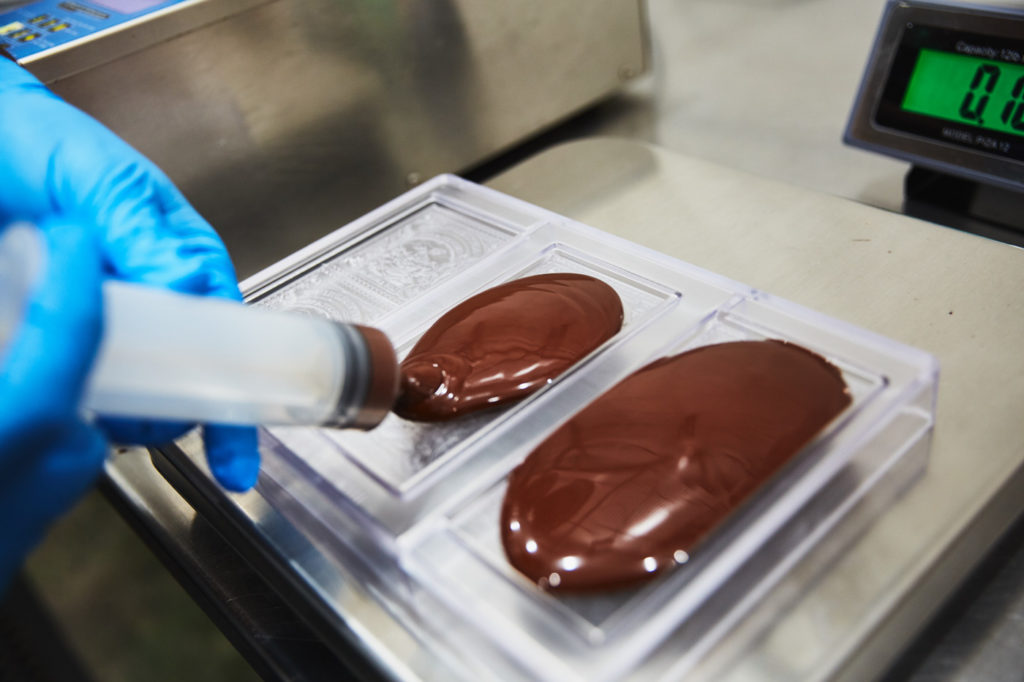
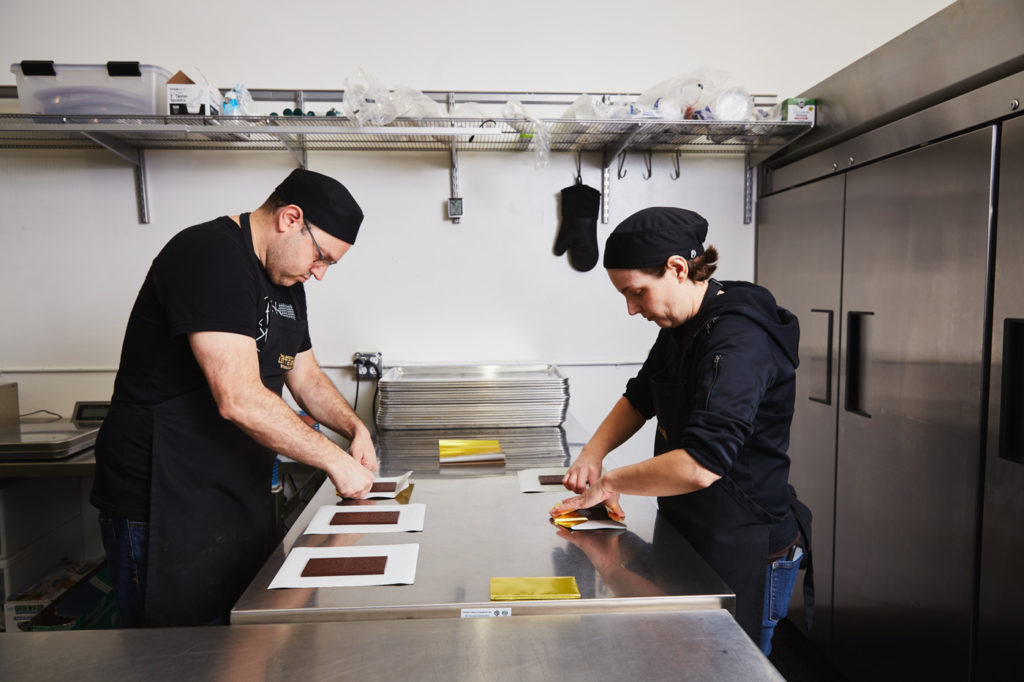
Jordan named the project Ucayali River Cacao after the region, since it was possibly where the first cacao trees originated. He searched high and low for farmers who were growing comun, and found about two dozen to start. Paying a premium for their cacao, he processed samples of what the region was capable of and sent them to O’Doherty, who then shared them with the Menkes.
For that first sample, Letterpress Chocolate received just enough cacao beans to make only a few bars. David recalled the bold, unique scent of comun cacao as soon as he threw it into the roaster. As was their routine, David would send some finished bars to O’Doherty, and the two would jump on the phone to discuss. They both agreed this cacao was truly phenomenal.
While David focused on roasting and tempering the chocolate to capture its flavor profile, Corey—a biologist by trade with a background in ecology—looked into the business practices and sustainability of Ucayali River Cacao. Once they knew their values on quality and trade were aligned, the Menkes set out to put Ucayali on the chocolate map.
***
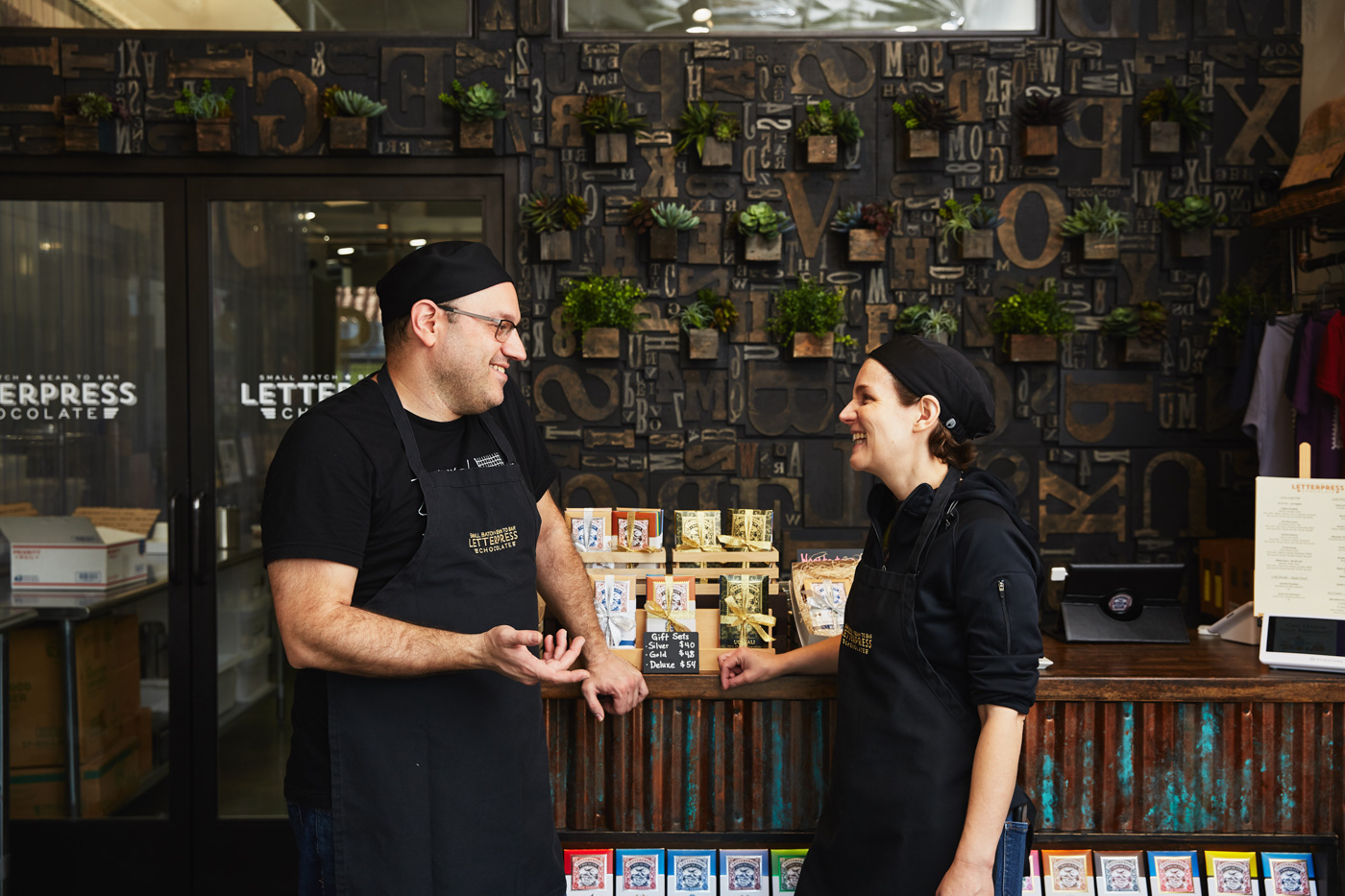
Word of what was happening in Peru began to spread in early 2017 at the Academy of Chocolate Awards. This caught the attention of the United States Agency of International Development (USAID) and the Alianza Cacao del Peru, or Peruvian Cacao Alliance. The two organizations had been working with the U.S. embassy in Lima to migrate local farmers away from coca production toward a legitimate crop. Their overall goals were to improve the lives of local farmers and economic development in the region, all while putting a dent in the cocaine trade.
The timing couldn’t have been more ideal. USAID and the Peruvian Cacao Alliance had connections to a network of small farms that wanted to make a change. Although no commodity could return the same value as coca, a legal alternative would offer local farmers a more balanced life—to legitimize their income, be able to put money in the bank, avoid robbery common to the area, and pay taxes which would help build local infrastructure like roads and schools.
Through the work of Ucayali River Cacao and Letterpress Chocolate, the demand for comun cacao was growing beyond its supply. Jordan needed to expand his network and recruit more farmers. USAID recognized Ucayali River Cacao was the region’s best shot at transitioning from coca to high-end cacao.
Letterpress Chocolate and Ucayali River Cacao were then recruited by USAID to educate farmers about the economic potential of cacao farming. As a result, immediately after his awards-filled flight from New York City to Los Angeles, David boarded a plane for Lima, followed by another ninety-minute flight into the Amazon rainforest.
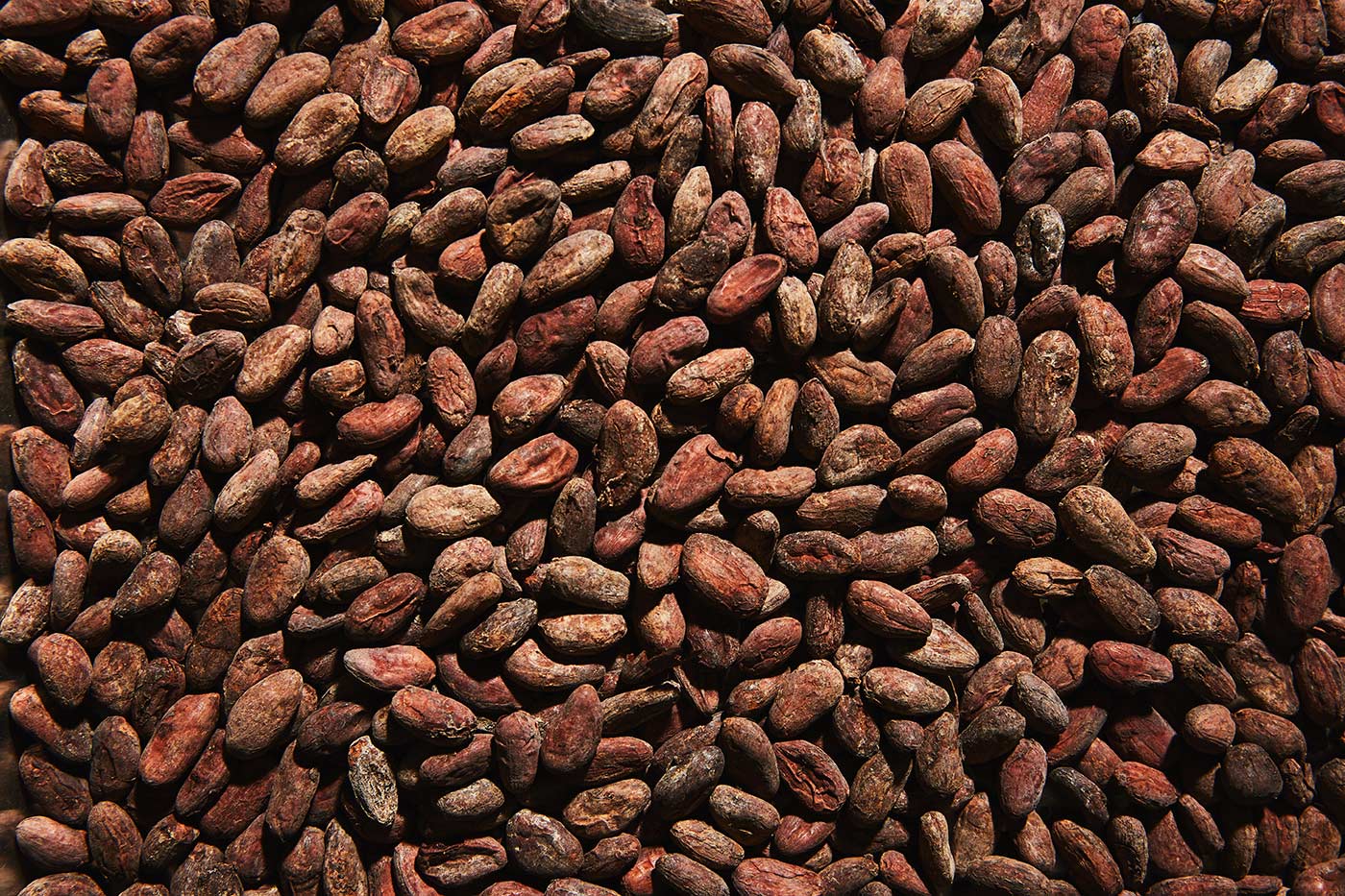
Escorted by armed guards, David and Jordan went from farm to farm to introduce comun cacao and its immediate impact on an average farmer’s income. Since the craft chocolate industry pays a premium for quality cacao beans, Ucayali River Cacao was well positioned to offer three to five times the international commodity rate for comun, which instantly translated to higher profit margins for small farms.
While change has been gradual and coca production still exists in the Ucayali region, the network of small farms working with Ucayali River Cacao has significantly increased from two dozen to more than four hundred small farms.
***
When David traveled to Peru, he made sure to bring bars of Letterpress Chocolate’s award-winning Ucayali chocolate with him; he wanted to share it with the farmers who had grown the cacao beans. As they tasted the fruits of their labor, the farmers experienced both the value of comun in their lives and the enjoyment it brings to the world.

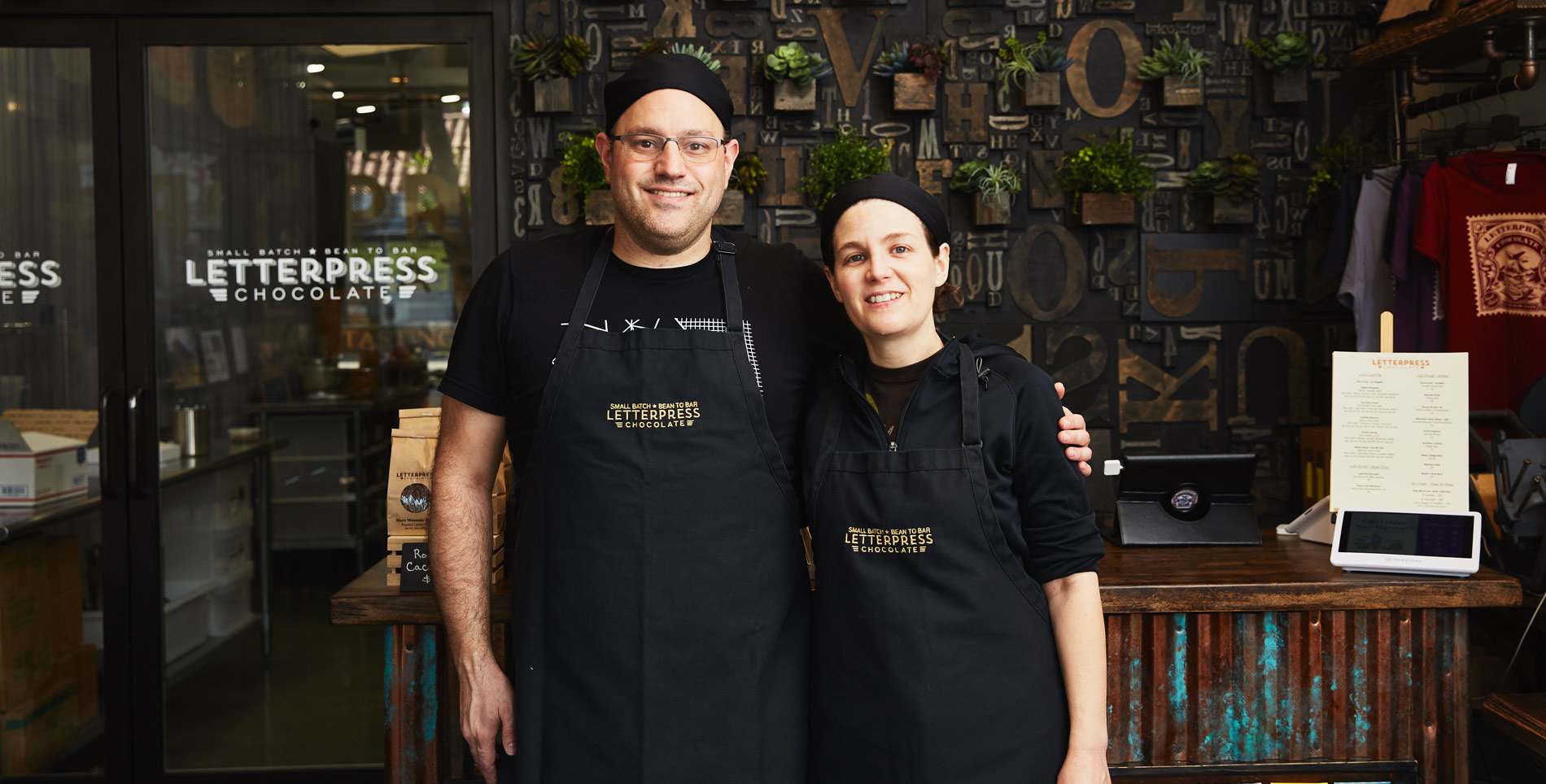

Our comments section is for members only.
Join today to gain exclusive access.